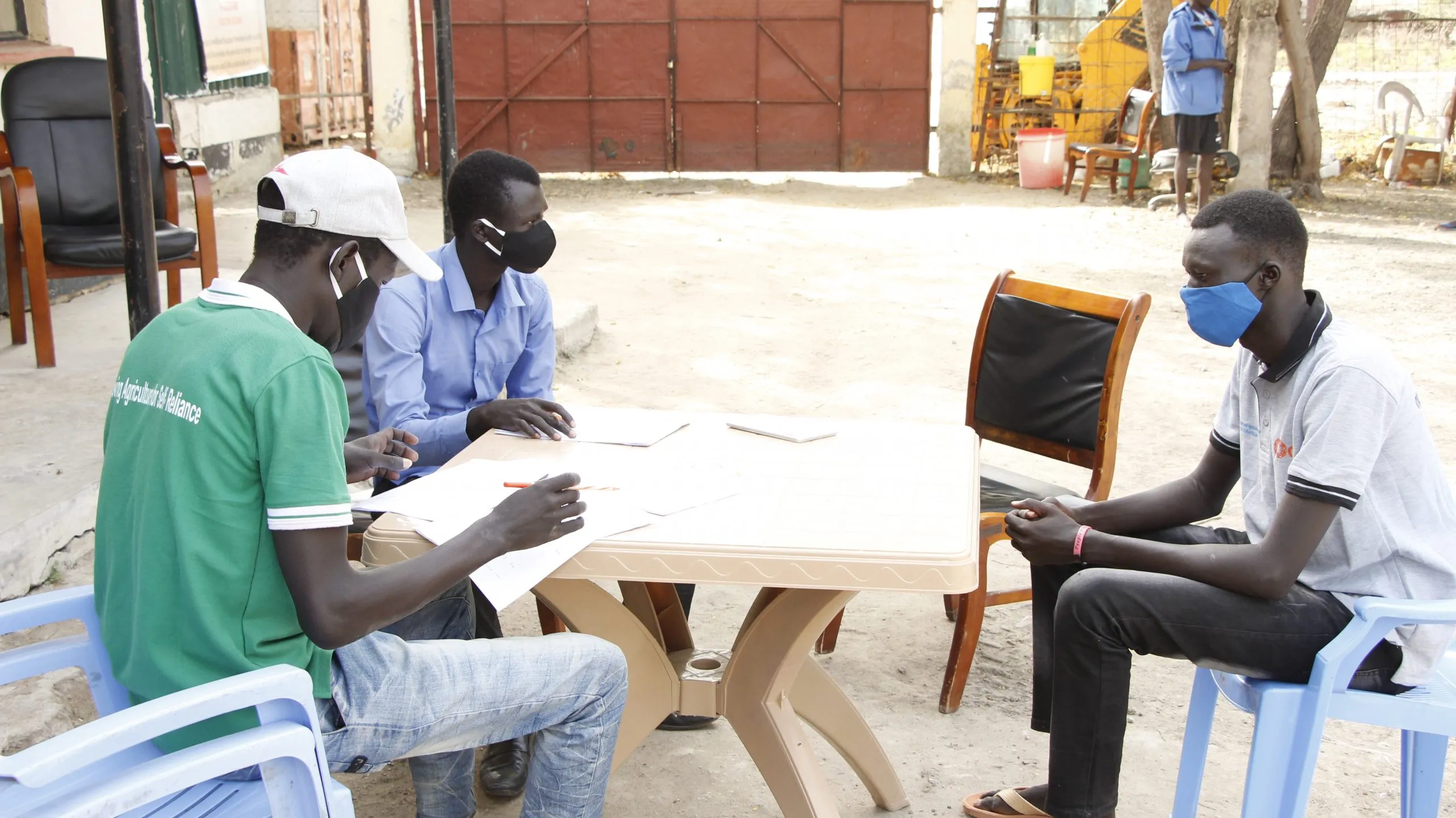Juba, South Sudan, 7 July 2021 – As South Sudan celebrates its 10th year of Independence the country faces its worst humanitarian context since the birth of the nation in 2011. Despite the huge challenges, there are areas of hope in the form of efforts and initiatives by local women’s organizations. These groups are working to tackle endemic sexual violence and pervasive inequalities that women and girls face that are fueling conflict and humanitarian needs in the country. However, more and immediate investment in, and support for, these female-led initiatives is immediately needed if they are to help craft a brighter future for South Sudan.
“We need to break this cycle of violence and vulnerability amongst women and girls,” says Rosalind Crowther, CARE South Sudan Country Director, “and the best way to do so is by involving women from within the country to find these solutions. As South Sudan faces its worst humanitarian situation since its independence 10 years ago, local women’s voices, ideas, and leadership are more crucial than ever. More funding is urgently needed for local Women’s Rights Organisations and networks. These are the groups best placed to deliver culturally appropriate and sustainable interventions to shape a better future for their country.”
With funding from the Canadian government, CARE South Sudan currently supports women-led organizations and networks aimed at promoting women’s voices and leadership. These women tirelessly work to promote the advancement of women’s rights in South Sudan, tackle economic inequality, the huge problem of SGBV, and work to mainstream approaches for advancing equality for women and girls into the ongoing peace process and the representation of women in decision-making roles and processes within the country.
Jackline Nasiwa is the Founder of the Center for Inclusive Governance, Peace and Justice (CIGPJ) and part of the CARE supported network: “One of the biggest areas where women have played a role in the South Sudan story is when the conflict erupted. The country was chaotic, but despite this, women mobilized to have a voice and came out to influence the different parties involved to negotiate and find a peaceful way to solve the conflict. Our pressure helped lead to the roundtable peace discussions that ensued. We have also been instrumental in helping regular citizens – especially women – all over the country understand the wording and implications of the Peace Process agreement so they can also take ownership of it and implement it at a grassroots level.
“On a more practical level, women were also the ones on the ground rescuing and supporting neighbors, regardless of their ethnic background (which when the conflict first broke out was a huge driver in the fighting). I had a neighbor from a different tribe who had no water or food, and of course, I had to help her, and in this regard, it helped open conversations across ethnic boundaries and women were really leading in this reconciliation and peacebuilding. It is said that women have the heart of a mother, and they feel the pain of others, and when support is given to women, they do more with it as a result. But despite this, we face a lot of challenges in terms of lack of support in capacity building of women-led organizations and funding.”
Activities carried out by these groups include the mentoring of young girls on equality in the context of South Sudan, as well as awareness-raising on sexual exploitation and women’s reproductive health.
One young participant in the training noted; “I will use the knowledge I have gained to stand for my rights and fight for the equal rights of women and girls.”
Crowther notes: “local Women-Led Organisations (WLOs) in South Sudan are under-resourced and under-supported, this affects their institutional growth. Yet, we know that if women are empowered the whole family and community will benefit. All our experience and data also show that women, especially when involved in governance, humanitarian response and decision making, can also be some of the most effective changemakers and peacebuilders.”
It is crucial that women-led organizations are at the center of humanitarian policies, funding, and programmes if real progress is to be made. This includes ensuring that South Sudanese women can participate meaningfully and lead discussions with donors and decision-makers about how best to support the work they are doing to support other women, girls, and their communities.
Crowther adds; “women will play a critical role in building a peaceful, cohesive and prosperous South Sudan. Collectively, we must do much more to proactively support the empowerment of South Sudanese women to take up decision-making and leadership roles within the humanitarian system and beyond, to act as role models and encourage others. When women are empowered, everyone benefits.”

